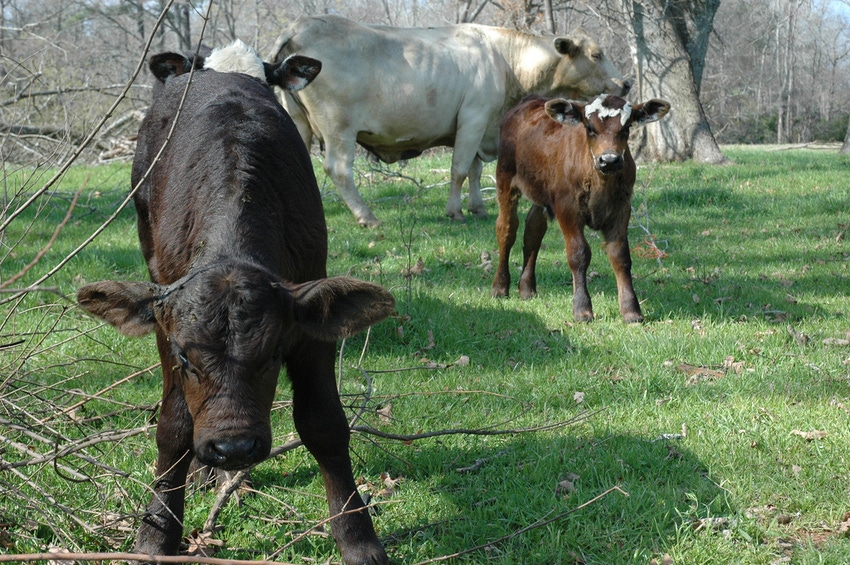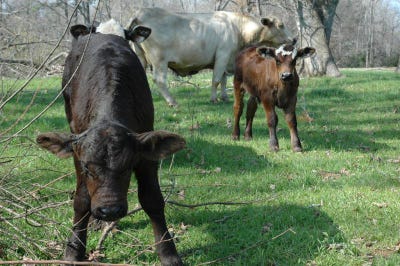Family Ranch Series Part 3: Avoid these 3 mistakes when estate planning
May 21, 2015

This is the third installment in my family ranching series, where I have focused on preparing for emergencies and managing money expectations in the family business. This week, we tackle the dreaded topic of estate planning.
In case you missed the previous two installments, check them out here:
1. Family Ranching Series Part 1: Is your family ranching business prepared for a crisis?
2. Family Ranching Series Part 2: 5 resources to help manage money expectations
The old anecdote, “failing to plan is planning to fail” certainly holds true when it comes to estate planning. Ranchers are willing to pay good money for a new herd bull and updated equipment, but when it comes to our willingness to pay a lawyer to assist in transition planning, we can get squeamish about the costs. However, not developing an estate plan for the ranch could be the costliest mistake a producer ever makes.
READ: 10 estate planning tips; PLUS: How one farmer gifted his estate
I recently read an article on wealthmanagement.com that lists the three estate planning mistakes farmers and ranchers make and how to avoid them. Here are the three most common mistakes:

Photo Credit: Texas AgriLife
According to the article, “Clients who own a farm or a ranch and already have an estate plan need to understand the importance of keeping the plan up to date as life events happen (births, deaths, marriages, divorces, illnesses, bankruptcies, lawsuits, jackpots) and laws are modified or repealed.”
2. Relying on joint accounts and beneficiary designations
“Farmers and ranchers may believe that the easiest way to plan their estates and avoid probate is to own property in joint names with family members, establish payable on death (POD) or transfer on death (TOD) accounts, and name family members as beneficiaries of their life insurance policies and retirement accounts. Relying on joint accounts and beneficiary designations is a huge mistake on many fronts,” the article points out.
“How property is titled often dictates who inherits it. Farmers and ranchers need to coordinate assets held in business entities and trusts with assets that are jointly owned or pass under a beneficiary designation. Otherwise, intended heirs may end up with nothing and estate tax bills may cause unintended consequences.”
READ: 80% don't have an estate plan; does your ranch?
3. Overlooking liquidity needs
According to the article, “Incapacity and death are expensive. Aside from day-to-day family expenses and medical bills, attorneys, accountants, trustees, and other administration expenses need to be paid. To make matters even more challenging, federal estate taxes are due within nine months of death, and state death taxes are also typically due within this same time frame. Where will the farming or ranching family get the cash to pay these expenses? Farmland is illiquid as is farming equipment. Without properly planning for immediate and long-term cash needs, families may be forced to quickly sell land and equipment at a reduced rate.”
You can read the entire article here.
Do you have an estate plan in place? What advice do you have for someone who is looking to get started? From your experiences, what mistakes should be avoided? Share your advice in the comments section below.
By the way, in April I wrote a five-part grazing series. In case you missed it, here are the links to each installment in the series.
1. Grazing Series Part 1: 3 tips for spring hay & pasture management
2. Grazing Series Part 2: Extensive vs. moderate grazing, effective cross-fencing & more
4. Grazing Series Part 4: 7 resources for pasture management in times of drought
5. Grazing Series Part 5: Be a good neighbor & maintain your fences with these 3 tips
The opinions of Amanda Radke are not necessarily those of beefmagazine.com or Penton Agriculture.
You might also like:
10 negative reviews of the Food Babe worth reading & sharing
Breed-back on first-calf heifers starts with nutrition
How to treat lump jaw disease in cattle
You May Also Like


.png?width=300&auto=webp&quality=80&disable=upscale)
